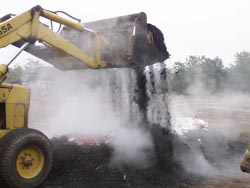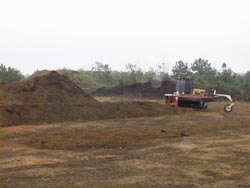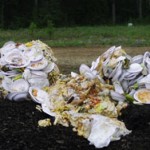Large-Scale Composting
go.ncsu.edu/readext?425207
en Español / em Português
El inglés es el idioma de control de esta página. En la medida en que haya algún conflicto entre la traducción al inglés y la traducción, el inglés prevalece.
Al hacer clic en el enlace de traducción se activa un servicio de traducción gratuito para convertir la página al español. Al igual que con cualquier traducción por Internet, la conversión no es sensible al contexto y puede que no traduzca el texto en su significado original. NC State Extension no garantiza la exactitud del texto traducido. Por favor, tenga en cuenta que algunas aplicaciones y/o servicios pueden no funcionar como se espera cuando se traducen.
Português
Inglês é o idioma de controle desta página. Na medida que haja algum conflito entre o texto original em Inglês e a tradução, o Inglês prevalece.
Ao clicar no link de tradução, um serviço gratuito de tradução será ativado para converter a página para o Português. Como em qualquer tradução pela internet, a conversão não é sensivel ao contexto e pode não ocorrer a tradução para o significado orginal. O serviço de Extensão da Carolina do Norte (NC State Extension) não garante a exatidão do texto traduzido. Por favor, observe que algumas funções ou serviços podem não funcionar como esperado após a tradução.
English
English is the controlling language of this page. To the extent there is any conflict between the English text and the translation, English controls.
Clicking on the translation link activates a free translation service to convert the page to Spanish. As with any Internet translation, the conversion is not context-sensitive and may not translate the text to its original meaning. NC State Extension does not guarantee the accuracy of the translated text. Please note that some applications and/or services may not function as expected when translated.
Collapse ▲This site is about composting organic materials on a large scale at municipal, farm, or commercial facilities.
Turning Problems into Profits
 In the early 1990’s, most public officials and business owners thought of organic waste materials such as yard trimmings, food scraps, and sludge as a problem they had to dispose of. But now, more often, public agencies and entrepreneurs are turning this former problem into a profit with environmental benefits.
In the early 1990’s, most public officials and business owners thought of organic waste materials such as yard trimmings, food scraps, and sludge as a problem they had to dispose of. But now, more often, public agencies and entrepreneurs are turning this former problem into a profit with environmental benefits.
Composting Basics
 Composting is the aerobic decomposition of organic materials by micro-organisms under controlled conditions into a soil-like substance called compost. During composting, microorganisms such as bacteria and fungi break down complex organic compounds into simpler substances and produce carbon dioxide, water, minerals, and stabilized organic matter (compost). The process produces heat, which can destroy pathogens (disease-causing microorganisms) and weed seeds.
Composting is the aerobic decomposition of organic materials by micro-organisms under controlled conditions into a soil-like substance called compost. During composting, microorganisms such as bacteria and fungi break down complex organic compounds into simpler substances and produce carbon dioxide, water, minerals, and stabilized organic matter (compost). The process produces heat, which can destroy pathogens (disease-causing microorganisms) and weed seeds.
Types of Composting Facilities
Composting facilities are aerated or unaerated and covered or not covered. Composting methods include passive piles, windrows, static piles, and in-vessel composting (in bins, beds, silos, transportable containers, and rotating drums).
Resources
Publications
- Composting at NC Residential and Summer Camps
Rhonda Sherman, November 28, 2022 (updated from 2013). AG-773, N.C. Cooperative Extension Service, - Composting in Childcare Center Gardens Rhonda Sherman, 2020, LF-007-07, N.C. Cooperative Extension Service.
- Large Scale Composting: On-Farm Composting Methods – FOA Corporate Document Repository
- The Composting Handbook: a how-to and why manual for farm, municipal, institutional and commercial composters; Robert Rynk, London, United Kingdom; San Diego, CA: Elsevier Academic Press, [2022]
- On-Farm Composting Handbook Robert Rynk, et. al. 1992. Northeast Regional Agricultural Engineering Service, Cooperative Extension. 204 pages.
- Community-Scale Composting Systems: A Comprehensive Practical Guide for Closing the Food System Loop and Solving Our Waste Crisis James McSweeney. 2019. Chelsea Green Publishing. 464 pages.
- The Composting Handbook Robert Rynk, et. al. October 1, 2021. Elsevier Publishing. 566 pages.
 Internet Resources
Internet Resources
- Cornell Composting -On-farm Composting Handbook
- Cornell Waste Management
- ATTRA
- Farm-scale Composting Resource list
- Industrial Park Composting Options


